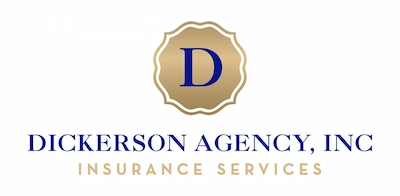A Cyber Liability Guide from Dickerson Agency, Inc.
In today’s digital age, businesses face a myriad of cyber threats that can disrupt operations, compromise sensitive information, and result in significant financial losses. At Dickerson Agency, Inc., we understand the importance of safeguarding your business against these threats. Our Cyber Liability Insurance Questionnaire is designed to help you assess your current cybersecurity posture and identify the coverage you need to protect your business effectively.
Business Information
Let’s start with some basic information about your business:
- Business Name
- Primary Contact Name
- Contact Information (Email and Phone)
- Business Sector/Industry
Section 1: General Information
Understanding the nature of your business operations and digital assets is crucial for tailoring the right cyber liability coverage.
- Business Operations: Briefly describe the nature of your business and online operations. This helps us understand the scope of your digital activities and potential risks.
- Digital Assets: What types of digital assets do you store, process, or transmit? (e.g., customer data, intellectual property). Knowing this helps in assessing the level of protection required.
- Previous Cyber Incidents: Have you experienced any cyber incidents or data breaches in the past? If yes, please provide details. Historical incidents can highlight areas that need stronger security measures.
Section 2: Cybersecurity Measures
Effective cybersecurity measures are the first line of defense against cyber threats.
- Security Policies: Do you have a formal cybersecurity policy in place? A well-defined policy is essential for maintaining robust cybersecurity practices.
- Employee Training: Do you provide cybersecurity training for your employees? Regular training ensures that your team is aware of potential threats and knows how to respond appropriately.
- Access Controls: How do you control access to sensitive information and critical systems? Access controls are vital for preventing unauthorized access.
- Data Encryption: Is sensitive or customer data encrypted both in transit and at rest? Encryption protects data from being intercepted and read by unauthorized parties.
- Antivirus and Malware Protection: What antivirus and malware protection measures do you have in place? These tools are crucial for detecting and preventing malicious software.
- Firewalls and Network Security: Describe your firewall and network security measures. Robust network security prevents unauthorized access and data breaches.
Section 3: Incident Response and Recovery
Preparation for potential cyber incidents can significantly mitigate their impact.
- Incident Response Plan: Do you have an incident response plan in place for managing cyber incidents? A solid plan ensures a swift and effective response to cyber threats.
- Data Backup: How frequently do you back up critical data? Regular backups are essential for data recovery in case of a cyber incident.
- Disaster Recovery Plan: Do you have a disaster recovery plan specifically addressing cyber incidents? This plan ensures that your business can quickly resume operations after a cyber attack.
Section 4: Third-Party Services and Cloud Storage
Many businesses rely on third-party services, which can introduce additional cybersecurity risks.
- Service Providers: Do you use third-party services or cloud providers for data storage or processing? Knowing this helps in assessing the risks associated with these services.
- Vendor Management: How do you assess and manage the cybersecurity practices of third-party vendors? Ensuring that your vendors follow robust cybersecurity practices is crucial for protecting your data.
Section 5: Compliance and Legal
Compliance with regulatory requirements is essential for legal and financial protection.
- Regulatory Compliance: Are you subject to any regulatory requirements regarding data protection and cybersecurity? (e.g., GDPR, HIPAA). Compliance helps in avoiding legal issues and fines.
- Legal Proceedings: Have you faced any legal actions or fines related to cyber incidents or data breaches? Understanding your legal history helps in tailoring the right coverage.
Section 6: Insurance History and Needs
Reviewing your current coverage and identifying gaps ensures comprehensive protection.
- Current Coverage: Do you currently have cyber liability insurance? If yes, please provide details of coverage. This helps in assessing the adequacy of your current policy.
- Coverage Gaps: Are there specific areas of your cyber risk not covered by your current policy? Identifying gaps helps in ensuring comprehensive coverage.
- Insurance Requirements: Based on your understanding of your cyber risks, what specific coverages are you looking for? Tailoring coverage to your needs ensures maximum protection.
Closing Remarks
Provide any additional information about your cybersecurity practices or concerns. How soon are you looking to implement or update your cyber liability insurance? Your feedback helps us understand your priorities and tailor our services to meet your needs.
At Dickerson Agency, Inc., we are committed to helping you navigate the complexities of cyber liability insurance. Our experienced risk advisors are here to ensure that your business is protected against evolving cyber threats. If you have any questions or need assistance, don’t hesitate to reach out to us.
